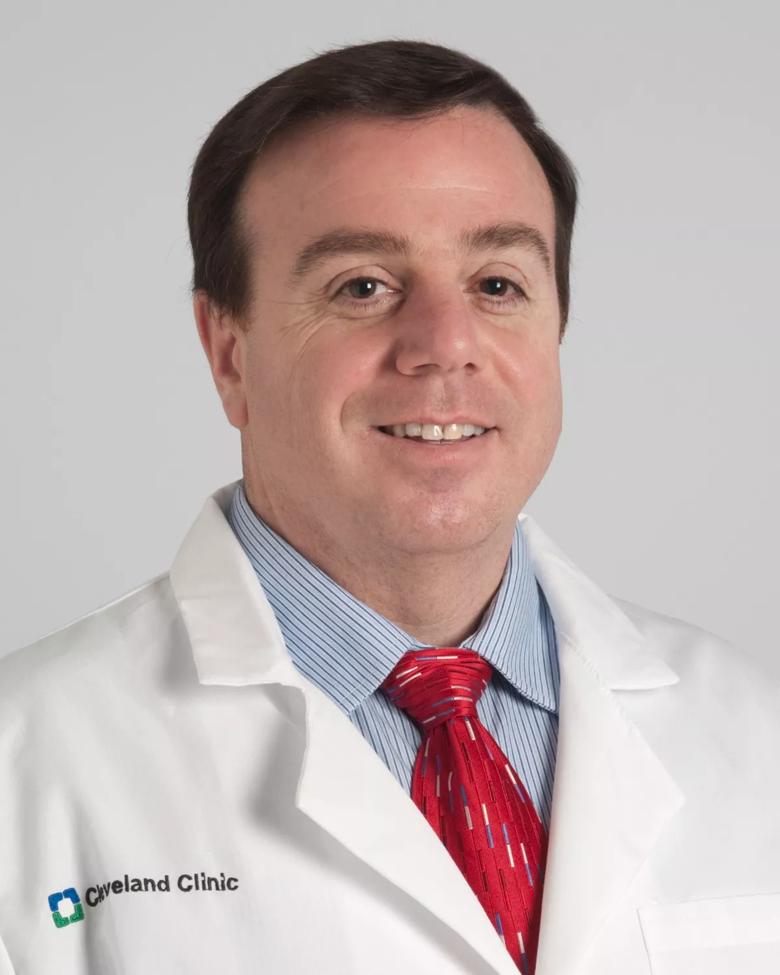Cleveland Clinic News Service | 216.444.0141
We’re available to shoot custom interviews & b-roll for media outlets upon request.
CCNS health and medical content is consumer-friendly, professional broadcast quality (available in HD), and available to media outlets each day.

Stanley Hazen, M.D., Ph.D., chair of the Department of Cellular & Molecular Medicine in the Lerner Research Institute and section head of Preventive Cardiology & Rehabilitation in the Miller Family Heart & Vascular Institute at Cleveland Clinic, has been named by the American Heart Association (AHA) a Distinguished Scientist for 2017.

Image content: This image is available to view online.
View image online (https://assets.clevelandclinic.org/transform/ff9a5fa9-3111-44d8-b8f8-965aae700682/Hazen-Stanley_jpg)
Stanley L. Hazen, M.D., Ph.D., chair of Cellular and Molecular Medicine
According to the AHA, the Distinguished Scientist designation was created in 2003 to honor AHA/ASA members who have made extraordinary contributions to cardiovascular and stroke research. This title recognizes influential research that has importantly advanced the understanding, management, and treatment of cardiovascular disease or stroke.
“Dr. Hazen’s research has fundamentally changed the way we think about the role of diet and the microbiome in the pathogenesis of heart disease.” said Serpil Erzurum, M.D., chair of Cleveland Clinic’s Lerner Research Institute. “Dr. Hazen is highly deserving of this distinguished award. We have already seen how his findings can change care. We look forward to watching his research continue to advance, and to see how his work will impact human health and patient care.”
“I am honored and humbled to receive this recognition from the AHA,” said Dr. Hazen. “I also want to acknowledge and thank my colleagues who have helped and supported me in making the discoveries and advances over the years.”
Dr. Hazen has published more than 380 peer-reviewed articles in basic and clinical journals alike. He has made pioneering discoveries in atherosclerosis and inflammatory disease research, including the seminal discovery linking gut microbial pathways to cardiovascular disease (CVD) and metabolic diseases, including atherosclerosis, thrombosis, heart failure and chronic kidney disease. His research impacts clinical practice, and lays the foundation for FDA-cleared diagnostic tests, and ongoing CVD drug development efforts.
In a recent landmark study, Dr. Hazen showed that interfering with certain gut microbial pathways with therapeutics can help block diet-dependent atherosclerosis. His comprehensive work establishes a new understanding of diet/gut microbe/host interactions in diseases and has spawned development of both new diagnostic tests and therapeutic approaches for the treatment and prevention of cardiovascular diseases and metabolic disorders.
Hazen’s numerous other discoveries include defining pathways white blood cells use to generate reactive oxidants and their functional importance in heart disease.
A member of Cleveland Clinic’s staff since 1997, Dr. Hazen is both a practicing physician and researcher and holds many leadership roles at Cleveland Clinic. He holds the Jan Bleeksma Chair in Vascular Cell Biology and Atherosclerosis.
He has received numerous awards, including election to the American Federation for Medical Research, the American Society for Clinical Investigation, the Association of American Physicians, and the National Academy of Medicine. He is also a fellow of the American Association for the Advancement of Science.
Dr. Hazen is the first Cleveland Clinic staff physician to receive this honor. He is among a class of seven scientists to be recognized at the annual American Heart Association Scientific Sessions.
Dr. Hazen earned a bachelor’s degree and dual M.D. /Ph.D. degree in Biophysical Chemistry and Molecular Biology, along with clinical training in Internal Medicine with subspecialty in Diabetes, Endocrinology and Metabolism at Washington University School of Medicine, St Louis.
Cleveland Clinic is a nonprofit multispecialty academic medical center that integrates clinical and hospital care with research and education. Located in Cleveland, Ohio, it was founded in 1921 by four renowned physicians with a vision of providing outstanding patient care based upon the principles of cooperation, compassion and innovation. Cleveland Clinic has pioneered many medical breakthroughs, including coronary artery bypass surgery and the first face transplant in the United States. Cleveland Clinic is consistently recognized in the U.S. and throughout the world for its expertise and care. Among Cleveland Clinic’s 82,600 employees worldwide are more than 5,786 salaried physicians and researchers, and 20,700 registered nurses and advanced practice providers, representing 140 medical specialties and subspecialties. Cleveland Clinic is a 6,728-bed health system that includes a 173-acre main campus near downtown Cleveland, 23 hospitals, 280 outpatient facilities, including locations in northeast Ohio; Florida; Las Vegas, Nevada; Toronto, Canada; Abu Dhabi, UAE; and London, England. In 2024, there were 15.7 million outpatient encounters, 333,000 hospital admissions and observations, and 320,000 surgeries and procedures throughout Cleveland Clinic’s health system. Patients came for treatment from every state and 112 countries. Visit us at clevelandclinic.org. Follow us at x.com/CleClinicNews. News and resources are available at newsroom.clevelandclinic.org.
Editor’s Note: Cleveland Clinic News Service is available to provide broadcast-quality interviews and B-roll upon request.